How to Create a Digital Onboarding Program: 5 Tips from Alto
TABLE OF CONTENTS
In a recent webinar, we sat down with Alto’s Training and Development Manager, Casey Huerta, to discuss how the US-based rideshare company managed to convert a full day’s worth of in-person onboarding into concise, impactful and engaging online training.
Since making the transition to digital onboarding with eduMe, Alto have cut their onboarding time by half. The time it takes for new drivers to get to their first ride has reduced by 70%, and they’ve seen a completion rate of 83% with their new training videos.
Read on to find out why Alto decided it was time to take their onboarding online, and their top tips for turning face-to-face training into an online microlearning program.
In-person vs. online onboarding: why did Alto go digital?
You might be thinking, what’s the point in transitioning to digital employee onboarding when I can do it in person? If the last year has taught us anything, it’s just how valuable remote solutions can be in the face of unprecedented change.
It’s also been an opportunity for workforces across all markets to see the value of online training. It’s not only more cost-effective than sourcing venues, paying trainers by the hour and funding travel costs, it’s also far more accessible to the modern worker.
Pre-Covid, Alto had been relying on in-person onboarding sessions which were only hosted once or twice a week, and lasted an entire day. Concentrating all of the necessary information into hours of in-person training didn’t just result in information overload for the new hires, it also made for an onboarding solution that wasn’t scalable.
Candidates were having to wait one or two weeks before they could get started with onboarding, and having different hosts meant that orientation differed extensively from group to group. Maintaining consistency would be vital as they began to scale operations, and F2F training didn’t allow for it.
Transitioning to an online program through eduMe enabled Alto to deliver onboarding that was bite-size, timely and consistent across the board, helping to maintain the high level of quality that their customers expect and reduce time-to-productivity for their drivers.

How do I turn in-person onboarding into an online training program?
So, once you’ve decided it’s time to take your onboarding process online, where do you actually start?
It might seem like a daunting task, but Alto’s Casey Huerta shared her expert tips on how to make your online onboarding even more impactful than an in-person session.
1. Strip it back to the basics
The first step for Alto was to figure out what their drivers absolutely needed to know before getting out on the road for the first time. It can be tempting to offload every piece of information at the beginning, but this often leads to information overload and causes learners to disengage.
Trust that your learners will pick up the details as they get started, learning from peers or other training initiatives throughout the process, and strip it back to the essentials.
Training & Development Manager, Casey, spoke with support teams, managers and anyone else who had direct contact with Alto’s drivers in order to figure out what they needed on their first day, versus what they could teach them later, and based the digital onboarding program around these fundamentals.
2. Put yourself in their shoes
Another approach taken by Alto was to make the training content relatable to drivers. They did this by creating ‘day in the life’-style videos which took new recruits through each step of preparing for and performing a ride, and making sure that the content was relevant to them.
“We have footage from all of our cities in those videos so that they can see themselves in the content, so that they think: when I go to the depot, this is what it's gonna look like in Miami, or this is what it's gonna look like when I'm in Houston.”
Putting themselves in their drivers’ shoes enabled them to create training videos that new starters actually wanted to see, giving them insight into what they could expect from the job and in a context that they can relate to.
3. Show, don’t tell
Alto also understood that showing how things are done was so much more valuable than just saying it.
“Seeing somebody else roleplay it first before they actually get in the car and have to do it themselves has definitely been very helpful for a lot of our drivers.”
Creating videos which showed the full process involved in completing a ride helped to further contextualize the information learners were being given, and gave them a reference ride which they could then recreate.
4. Replicate the human touch, digitally
The lack of human interaction may seem like a blocker when it comes to transitioning to online onboarding, but Alto have shown that it’s possible to replicate this connection virtually.
They created an introduction video featuring CEO Will Coleman, who personally welcomes drivers to the program and talks through what they can expect from being part of the team. This is then supplemented with ongoing support from real-life trainers, who organize ‘check rides’ (aka quality assurance rides) and continually check in on drivers throughout the process.
Alto also holds virtual sessions, referred to as ‘tune-ups’, which take place one or two weeks after new drivers have started going out on the road. These are virtual hangouts where drivers from all four cities can participate and connect with each other, helping to build personal rapport and foster a sense of community.
5. Utilize online tools
Alto’s final tip? Make the most of the clever automation tools now at your disposal. They use EduMe partner and high volume hiring tool Fountain to automate their onboarding process, saving valuable HR time and making the candidate experience even more seamless.
With this integration, they’re able to set up triggered messages which take candidates directly from Fountain to EduMe-hosted onboarding content. Where new starters previously had to wait one or two weeks for an in-person orientation, they can now access onboarding materials instantly and complete the training within their own time, on their device of choice.
“That has really put the timing in their hands and it's made our training accessible 24/7, which I think is wildly valuable.”
For more insights into Alto’s journey to effective online onboarding, you can watch the full webinar recording here.
Alto are just one of our many clients who’ve seen incredible results from taking their onboarding process online and harnessing the power of mobile learning. We’ve helped companies such as Uber, Gorillas and Deliveroo achieve workforce success with our seamless learning platform, designed to boost learner engagement and help businesses curb retention.
Book a demo with us below to see how we can help you do the same 👇
Join 10,000+ frontline leaders
Subscribe to ‘Training the Frontline’ and get weekly insights sent straight to your inbox.

